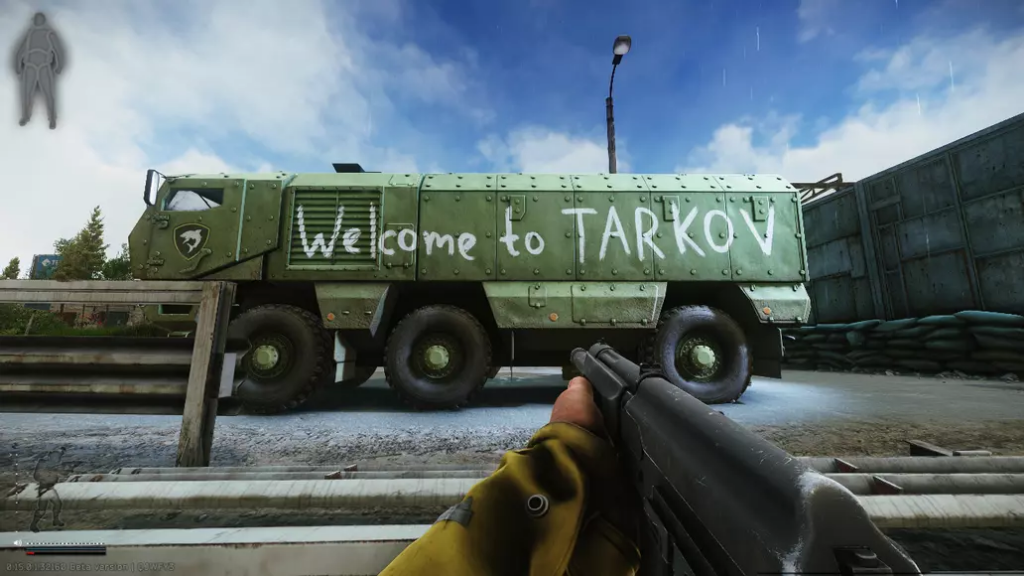Escape from Tarkov (EFT) is known for its intense realism, tactical gameplay, and high-stakes looting system. This hardcore first-person shooter has cultivated a dedicated player base that values skill, strategy, and survival instincts. However, like many competitive online games, EFT has been plagued by cheaters, significantly impacting the experience for both casual and veteran players.
The presence of cheats in Escape from Tarkov has sparked frustration, controversy, and ongoing debates about fairness, game integrity, and developer responsibility. This article explores the various ways cheating affects the community, from gameplay frustrations to economic consequences, and examines how the game’s developers and players have responded to this growing issue.
The Rise of Cheating in Escape from Tarkov
Cheating in Escape from Tarkov is not a new phenomenon, but it has become increasingly prevalent as the game’s popularity has grown. Hackers exploit vulnerabilities in the game’s code to gain unfair advantages, such as:
- Wallhacks – Allowing players to see through walls and locate enemies effortlessly.
- Aimbots – Providing automatic headshots with pinpoint accuracy.
- Speed hacks – Enabling players to move at unnatural speeds.
- Item duplication – Creating infinite copies of valuable loot.
- Radar hacks – Displaying enemy positions on an external device.
These cheats completely break the immersive and skill-based nature of EFT, ruining the experience for those who play legitimately.
How Cheats Ruin the Gameplay Experience
Destroying Fair Competition
Escape from Tarkov is built around the principle of fairness, where players must rely on their skills, tactics, and knowledge of maps to succeed. Cheaters disrupt this balance, making legitimate play feel pointless. When an honest player carefully sneaks through a raid, only to be instantly headshotted by a hacker from across the map, it creates a feeling of helplessness and frustration.
Increased Player Frustration and Burnout
Experiencing repeated deaths at the hands of cheaters leads to high levels of frustration. EFT cheats, as they cannot compete against those who abuse the system. This frustration often turns into burnout, leading some to quit the game altogether.
Undermining the Risk-and-Reward System
One of EFT’s core mechanics is the high-stakes looting system. Players risk everything they carry into a raid and must successfully extract to keep their gear. Cheaters bypass this risk entirely, acquiring top-tier weapons and armor without effort. This imbalance undermines the economy of the game, making hard-earned loot feel worthless.
The Economic Consequences of Cheating
Ruining the In-Game Economy
Escape from Tarkov has a player-driven economy where item rarity and availability shape the market. Cheaters who use item duplication or loot ESP (allowing them to see valuable items through walls) flood the economy with rare gear, devaluing legitimate players’ efforts. This inflation makes it harder for new or casual players to earn money fairly.
Boosting the RMT (Real Money Trading) Market
Many cheaters engage in real money trading (RMT), selling high-value items, accounts, or in-game currency for real-world money. This black market encourages more hacking and further disrupts the game’s balance. Players who buy from RMT sellers contribute to the problem, indirectly supporting the cheating ecosystem.
Impact on Player Progression
For legitimate players, EFT is a grind-heavy game that requires hours of effort to progress. When cheaters acquire endgame loot instantly, it diminishes the sense of achievement for everyone else. Players who follow the intended progression system find themselves at a severe disadvantage, as cheaters dominate raids with superior gear they did not earn.
Community Response to Cheating
Growing Distrust and Paranoia
As cheating becomes more common, even fair players start suspecting others of hacking. This leads to paranoia within the community, with accusations being thrown around in every match. Players often assume that any difficult or unexpected death is due to a cheater, even when it might not be. This distrust damages the sense of camaraderie and fair competition that online communities thrive on.
Reduced Player Base
The ongoing cheating issue has driven many players away from Escape from Tarkov. Some quit outright, while others take extended breaks in hopes that the developers will address the problem. As player frustration grows, EFT risks losing both its casual and hardcore audience, leading to a decline in the game’s longevity.
The Rise of Anti-Cheat Advocacy
Many dedicated EFT players have taken to forums, social media, and streaming platforms to advocate for stronger anti-cheat measures. Some have even conducted independent investigations, exposing cheaters and RMT operations. The community continues to push for better detection systems and harsher punishments for offenders.
Developer Efforts to Combat Cheating
Anti-Cheat Software Implementation
Battlestate Games, the developers of Escape from Tarkov, have implemented several anti-cheat measures, including BattlEye, to detect and ban hackers. However, despite these efforts, cheats continue to evolve, often staying one step ahead of detection systems.
Ban Waves and Public Statements
The developers periodically conduct ban waves, removing thousands of cheaters from the game. While this helps temporarily, new cheaters always emerge. Public statements from Battlestate Games reaffirm their commitment to fighting cheating, but many players remain skeptical about the effectiveness of their actions.
Manual Investigations
In addition to automated bans, the developers also rely on manual investigations and player reports. Some streamers and content creators have highlighted cheaters, prompting direct responses from the developers. However, this method is time-consuming and cannot keep up with the sheer volume of hackers.
The Psychological and Social Impact of Cheating
Normalizing Unethical Behavior
One of the biggest long-term dangers of cheating is the normalization of unethical behavior. Some players justify using cheats by arguing that everyone else is doing it or that the developers are failing to prevent it. This mindset erodes the principles of fair play and encourages a toxic gaming culture.
Damaging the Game’s Reputation
A game plagued by cheating quickly earns a negative reputation. Escape from Tarkov, despite its unique and engaging gameplay, has suffered from frequent complaints about hackers. This bad reputation can discourage new players from trying the game, ultimately affecting its growth.
Impact on Content Creators and Streaming
Many Escape from Tarkov streamers have expressed frustration over cheaters ruining their content. Watching a skilled player lose to an obvious hacker repeatedly can be discouraging for viewers, leading to decreased engagement. Some content creators have even left the game due to the constant interference of cheaters.
Possible Solutions and the Future of EFT
Stronger and More Adaptive Anti-Cheat Measures
EFT cheats, the developers need to invest in more advanced detection methods. AI-driven anti-cheat systems that analyze player behavior in real-time could help identify suspicious activity more efficiently.
Hardware Bans and Legal Action
Implementing hardware bans, where cheaters’ entire systems are blacklisted from playing, could serve as a stronger deterrent. Additionally, taking legal action against cheat providers, as seen in other gaming communities, could help reduce the availability of hacks.
Stricter Consequences for RMT Buyers
While banning cheaters is essential, punishing those who support RMT by purchasing items or accounts would also help reduce the incentive for hacking. If buyers faced severe consequences, the demand for illicit in-game goods would decrease.
Community Involvement in Reporting Cheaters
Encouraging the player base to report suspicious activity and rewarding legitimate gameplay could help create a healthier in-game environment. Providing tools for players to submit reports easily and ensuring swift action against offenders would build trust in the system.
Conclusion
Cheating in Escape from Tarkov continues to be a serious problem, negatively impacting gameplay, the in-game economy, and the overall community experience. While developers have taken steps to counteract hacking, the problem persists, causing frustration and driving players away.
A stronger anti-cheat system, harsher penalties for offenders, and continued community efforts are necessary to preserve the integrity of Escape from Tarkov. The future of the game depends on how effectively cheating can be controlled, ensuring that fair competition and player satisfaction remain at the core of the experience.



